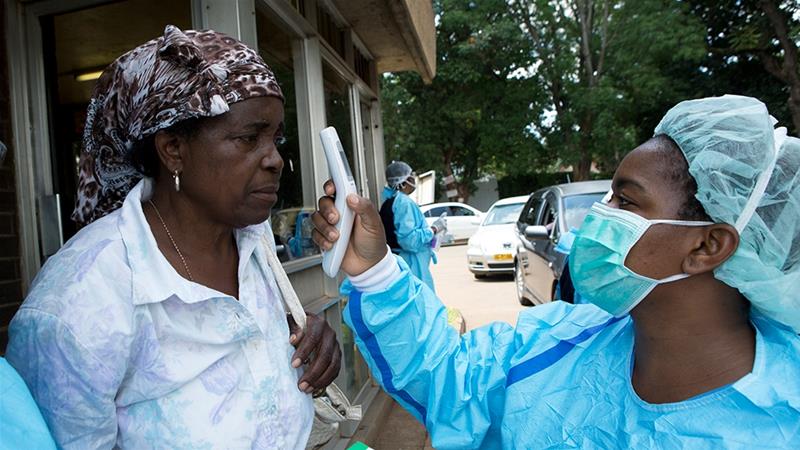HARARE – Lockdown measures announced by the Zimbabwe government to curb the rapid spread of the coronavirus will likely not succeed without measures targeting hotspots and scaled up testing, a group of human rights doctors have said.
The doctors accused the government of being “mostly reactionary” since the pandemic began, with its response “devoid of proper planning processes that respond to the existing risk levels.”
On Tuesday, the country witnessed its deadliest day since the respiratory illness was first detected in March with 34 deaths and a record 1,365 new infections.
The shock death toll came on the same day that the country went into its second hard lockdown announced last Saturday. Zimbabweans must observe a 6PM-6AM curfew, gatherings are banned and non-essential businesses were ordered closed.
The Zimbabwe Association of Doctors for Human Rights (ZADHR) however says the government must urgently limit interprovincial travel, and require travellers to carry time-limited Covid-19 test certificates showing a negative test for the virus.
“The ZADHR is of the position that the current lockdown measures announced by the government, though welcome, may not provide the much-needed impact in breaking the Covid-19 chain of transmission and help in flattening the Covid-19 curve,” the doctors said in a statement Wednesday.
“In a snap survey conducted by ZADHR on the first day of the lockdown, many non-essential retailers were in operation across the country. Additionally, human traffic was witnessed at the country borders and in inter-provincial travels. ZADHR posits that there are too many loopholes in the proposed letters of travel authorisation process with reports that some retailers were being granted exemption letters to operate in unclear circumstances.
“Furthermore, the government must identify provincial hotspots and have tailored measures or different levels of the lockdown depending on the incidence of Covid-19.”
The doctors also criticised a government decision to close land borders for general travel, but keep the airports open “when the country faces an existential threat of new strains of Covid-19 from South Africa and the United Kingdom.”
It also said a government decision to open schools for examination classes was self-defeating.
Said the doctors: “ZADHR acknowledges the move to allow only examination classes to open. However, with the current trends and mutation of the Covid-19 virus, ZADHR suggests that schools should remain closed until the widespread community transmission is under control.
“ZADHR, encourages the Ministry of Primary and Secondary Education and all relevant stakeholders to utilise the lockdown and the closure of schools to equip schools with necessary materials and equipment to curb Covid-19 transmission in schools.”
The doctors also called on the government to adopt a rights-based approach to the enforcement of Covid-19 regulations, warning against “excessive use of force, arbitrary arrests or detention, torture or any other cruel or inhumane treatment of those breaching lockdown regulations.”
Zimbabwe’s case fatality rate (CFR) is 2.42, which is slightly higher than the CFR for the rest of the world, which stands at approximately 2.1, the doctors noted.
















